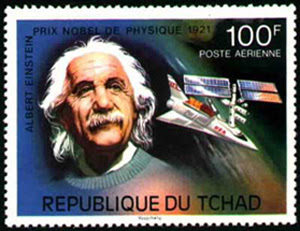'What can be done with fewer assumptions is done in vain with more.'
William of Ockham was an English monk, philosopher, theologian and probable victim of the Black Death, who provided the scientific method with its key principle 700 years ago.
Ockham’s razor (sometimes spelled Occam's razor) is a principle attributed to the 14th century. The principle states that the explanation of any phenomenon should make as few assumptions as possible, eliminating those that make no difference in the observable predictions of the explanatory hypothesis or theory. The term “razor” refers to the act of shaving away unnecessary assumptions to get to the simplest explanation.
The principle is often expressed in Latin as the lex parsimoniae ("law of parsimony" or "law of succinctness")
“entia non sunt multiplicanda praeter necessitatem,”
which translates to:
“Entities should not be multiplied beyond necessity.”
This is often paraphrased as "All things being equal, the simplest solution tends to be the best one." In other words, when multiple competing theories are equal in other respects, the principle recommends selecting the theory that introduces the fewest assumptions and postulates the fewest hypothetical entities.
Ockham’s Razor
Posted by:
Brilliant Gem :: The Emerald
2
comments
![]()
Energy Distribution of the Universe

Energy Distribution of the Universe:
The new Chandra observations include estimates of the total energy content of the Universe. As shown in this illustration, dark energy is estimated to contribute about 75% of the energy in the Universe, dark matter about 21% and normal matter about 4%. Only the normal matter can be directly detected with telescopes, and about 85% of this is hot, intergalactic gas, as detected in Chandra observations of galaxy clusters.
Posted by:
Brilliant Gem :: The Emerald
0
comments
![]()
Theory: The Universe Future

Three Possible Futures for the Universe:
This illustration shows three possible futures for the Universe, depending on the behavior of dark energy, by showing how the scale of the Universe may change with time:
I. If dark energy is constant, as the new Chandra results suggest, the expansion should continue accelerating forever.
II. If dark energy increases, the acceleration may happen so quickly that galaxies, stars, and eventually atoms will be torn apart, in the so-called Big Rip.
III. Dark energy may also lead to a re-collapse of the Universe, in the Big Crunch.
The illustration also shows the early decelerating expansion of the Universe, followed by the accelerating phase that started about 6 billion years ago.
Posted by:
Brilliant Gem :: The Emerald
0
comments
![]()
The Mythical Lover
Has driven me insane
I wander aimlessly
The ruins of my life
My old self a stranger to me
Because of your love
I have broken with my past
My longing for you
Keeps me
In this moment
My passion
Gives me courage
I look for you
In my innermost being
I used to read
The myths of love
Now I have become
The mythical lover
Posted by:
Brilliant Gem :: The Emerald
3
comments
![]()
Labels: Poems
Maslow's Hierarchy of Needs
Maslow's Hierarchy of Needs:
Maslow's Hierarchy of Needs:
• Self Actualization Needs
(full potential)
• Ego Needs
(self respect, personal worth, autonomy)
• Social Needs
(love, friendship, comradeship)
• Security Needs
(protection from danger)
• Physiological Needs
(warmth, shelter, food)

Values:
Values reflect one's judgment as to what is important in life. Maslow described what values were important in defining one's Being and he called them B Values. These B Values were used to describe self-actualization.
Maslow's B Values
1. WHOLENESS (unity; integration; tendency to one-ness)
2. PERFECTION (necessity; just-right-ness; just-so-ness)
3. COMPLETION (ending; finality; "it's finished")
4. JUSTICE (fairness; orderliness; lawfulness;)
5. ALIVENESS (process; non-deadness; spontaneity)
6. RICHNESS (differentiation, complexity; intricacy)
7. SIMPLICITY (honesty; nakedness; essentiality)
8. BEAUTY (rightness; form; aliveness)
9. GOODNESS (rightness; justice; benevolence)
10.UNIQUENESS (idiosyncrasy; individuality; non-comparability)
11.EFFORTLESSNESS (ease; lack of strain, striving or difficulty)
12.PLAYFULNESS (fun; joy; amusement)
13.TRUTH (honesty; reality; nakedness)
14.SELF-SUFFICIENCY (autonomy; independence; not-needing-other-than-itself-in-order-to-be-itself)
for a more detailed BValues list, visit Maslow's Website:
http://www.maslow.org/sub/bvals.htm
Posted by:
Brilliant Gem :: The Emerald
0
comments
![]()
Labels: Psychology
World Population Growth
World Population Growth

Posted by:
Brilliant Gem :: The Emerald
0
comments
![]()
Labels: Science
Nobel Prize
Nobel Prize
When Alfred Nobel’s father (Immanuel Nobel: 1801-1872) died, the local newspaper accidentally posted Alfred’s obituary. The next morning, Alfred read the morning paper and was stunned at what he read about his life story. The paper only focused on his invention of dynamite and how it contributed to war deaths. Alfred did not want to be known as the person who invented dynamite that killed so many people. In his will, he decided to put money into a foundation that would encourage accomplishments in specific areas.
The Nobel Prize is awarded each year to an individual who has made either a great single breakthrough or has made a great number of accomplishments in their lifetime in the fields of chemistry, physics, literature, medicine and peace. The prize has been given since 1901 and consists of a medal, a personal diploma, and a prize amount.
In Alfred Nobel's will he laid out the instructions for how the prize should be awarded. He stated that his remaining estate shall be invested in safe securities, and that the interest on this estate shall be annually distributed in the form of prizes to those who have met the written requirements.
In 1968, the Prize in Economic Sciences was established by the Bank of Sweden (Sveriges Riksbank) in memory of Alfred Nobel.
Posted by:
Brilliant Gem :: The Emerald
0
comments
![]()
Labels: Science
Alfred Nobel
Alfred Bernhard Nobel was born in Stockholm, Sweden on October 21st, 1833. His father Immanuel Nobel was an engineer, and worked in the construction of buildings and bridges. He also experimented with different methods of blasting rocks.
Immanuel was forced into bankruptcy; he then left his family in 1837 to start a new career in Finland and Russia. In 1842 Immanuel was able to bring his family to St. Petersburg where they received a first class education.
Alfred Nobel found interests in chemistry and physics. However his primary interests were in literature and poetry. His father disliked this and sent him off for training in chemical engineering.
Alfred soon became interested with nitroglycerine because it was so unstable; it exploded under unpredictable amounts of heat and pressure. He later experimented with different additives to make nitroglycerine more stable.
In 1867 Alfred patented his material under the name dynamite. This invention along with blasting caps drastically improved many forms of construction from rock blasting to digging canals. He spent much of his time traveling around the world selling his inventions. By the time of his death Alfred had 355 patents including artificial silk, synthetic rubber and leather, along with many other things.
Alfred Nobel died in San Remo, Italy, on December 10th, 1896. In his will Alfred signed over his estate and assets to the future winners of the Nobel Prize.
Posted by:
Brilliant Gem :: The Emerald
0
comments
![]()
Quotes: Albert Einstein
Some Collected Quotes from Albert Einstein
01) "Imagination is more important than knowledge."
02) "Gravitation is not responsible for people falling in love."
03) "I want to know God's thoughts; the rest are details."
04) "The hardest thing in the world to understand is the income tax."
05) "Reality is merely an illusion, albeit a very persistent one."
06) "The only real valuable thing is intuition."
07) "I am convinced that He (God) does not play dice."
08) "Weakness of attitude becomes weakness of character."
09) "I never think of the future. It comes soon enough."
10) "Sometimes one pays most for the things one gets for nothing."
11) "Science without religion is lame. Religion without science is blind."
12) "Anyone who has never made a mistake has never tried anything new."
13) "Everything should be made as simple as possible, but not simpler."
14) "Science is a wonderful thing if one does not have to earn one's living at it."
15) "The secret to creativity is knowing how to hide your sources."
16) "The whole of science is nothing more than a refinement of everyday thinking."
17) "Peace cannot be kept by force. It can only be achieved by understanding."
18) "The most incomprehensible thing about the world is that it is comprehensible."
19) "We can't solve problems by using the same kind of thinking we used when we created them."
20) "If A is a success in life, then A equals X plus Y plus Z.
Work is X; Y is play; and Z is keeping your mouth shut."
21) "Two things are infinite: the universe and human stupidity; and I'm not sure about the the universe."
22) "I know not with what weapons World War III will be fought, but World War IV will be fought with sticks and stones."
23) "The fear of death is the most unjustified of all fears, for there's no risk of accident for someone who's dead."
24) "Any intelligent fool can make things bigger, more complex, and more violent. It takes a touch of genius -- and a lot of courage -- to move in the opposite direction."
Posted by:
Brilliant Gem :: The Emerald
2
comments
![]()
Labels: Quotes
Qoutes: Johann Wolfgang Von Goethe
01) “One always has time enough, if one will apply it well.”
02) “Ambition and love are the wings to great deeds.”
03) “Everybody wants to be somebody; nobody wants to grow.”
04) “Difficulties increase the nearer we approach our goal.”
05) “What we do not understand we do not possess.”
06) “Thinking is easy, acting is difficult, and to put one's thoughts into action is the most difficult thing in the world.”
07) “We know accurately only when we know little, with knowledge doubt increases.”
08) “The first and last thing required of genius is the love of truth.”
09) “A useless life is an early death.”
10) “Many people take no care of their money till they come nearly to the end of it. Others do just the same with their time.”
Posted by:
Brilliant Gem :: The Emerald
0
comments
![]()
Labels: Quotes
Looking for Your Face!
 Looking for Your Face!
Looking for Your Face!
From the beginning of my life
I have been looking for your face
But today I have seen it
Today I have seen
The charm, the beauty,
The unfathomable grace of the face
That I was looking for.
Today I have found you
And those who laughed
And scorned me yesterday
Are sorry that they were not looking as I did
I am bewildered by the magnificence
Of your beauty
And wish to see you with a hundred eyes
My heart has burned with passion
And has searched forever
For this wondrous beauty that I now behold
I am ashamed to call this love human
And afraid of God to call it divine
Your fragrant breath
Like the morning breeze
Has come to the stillness of the garden
You have breathed new life into me
I have become your sunshine
And also your shadow
My soul is screaming in ecstasy
Every fiber of my being is in love with you
Your effulgence
Has lit a fire in my heart
And You have made radiant for me
The earth and sky
My arrow of love
Has arrived at the target
I am in the house of mercy
And my heart
Is a place of prayer.
Posted by:
Brilliant Gem :: The Emerald
0
comments
![]()
Labels: Poems
All About LOVE...

Love is always patient and kind.
It is never jealous.
Love is never boastful nor conceited.
It is never rude or selfish.
It does not take offense and is not resentful.
Love takes no pleasure in other people’s sins, but delights in the truth.
It is always ready to excuse, to trust, to hope and to endure what ever comes....
Posted by:
Brilliant Gem :: The Emerald
0
comments
![]()
Labels: Poems












